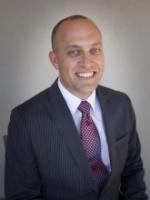
Scott J. Brandenberg is an Associate Professor in the Department of Civil and Environmental Engineering at UCLA. His research focuses on geotechnical earthquake engineering, including the seismic response of levees, the behavior of deep foundations embedded in liquefiable soil profiles, soil-structure interaction, seismic earth pressures, site response analysis, and geophysical imaging. He earned his BS from Cal Poly, San Luis Obispo in 2000, and his MS and PhD from UC Davis in 2002 and 2005, respectively. His research accomplishments have been recognized by the 2010 Arthur Casagrande Professional Development Award, 2013 Shamsher Prakash Research Prize, and 2015 Walter L. Huber Award.
The Sacramento / San Joaquin Delta is the hub of California's water distribution system, providing fresh water to over 20 million Californians and directly supporting our $50 billion/year agricultural industry. A network of over 1,100 miles of levees circumscribes Delta "islands" that lie as much as 10m below sea level. Unlike traditional flood control levees that are intermittently loaded during high water events, the Delta levees constantly impound water and have as little as a meter of freeboard at high tide. A breach along any segment of a levee system inundates the island, resulting in potentially hundreds of millions of dollars in loss. The Delta lies in a region of moderate seismicity at the eastern margin of the San Andreas fault system. Earthquakes pose a particularly onerous risk to Delta levees due to the potential for multiple simultaneous levee breaches. This presentation will discuss a multi-faceted research program that studied the response of levees to earthquakes, including a field modeling study, centrifuge modeling, laboratory testing, analysis of field case histories, development of a system risk assessment framework, and development of a nonlinear consolidation code that includes the effects of secondary compression.
Lindsay Walton
lwalton@ucsd.edu
(858)822-3273
